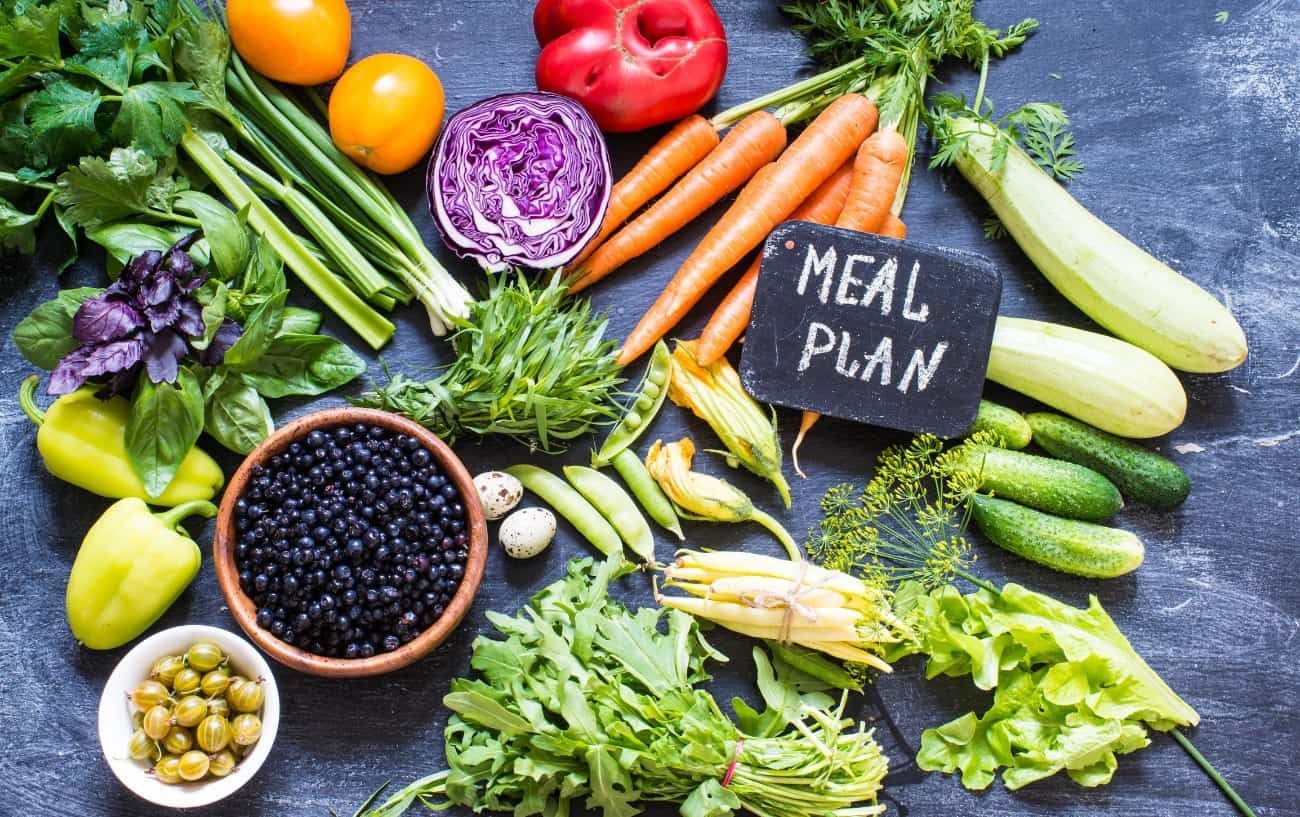Plant-Based Runner's Diet
For many athletes, running is a way of life. It is an activity that requires discipline, mental clarity, and physical strength. While there are many different types of runners, one thing that we all have in common is the need to fuel our bodies properly.
For plant-based runners, it can be a bit more challenging to find the right balance of nutrients to support endurance runs. But, with the right knowledge and tools, it is possible to achieve optimal performance while still staying true to a plant-based lifestyle.
In this post, the
runYOGAroll team will be sharing some tips and tricks to help you fuel your endurance runs and reach your full potential as a plant-based runner. From pre-run meals to on-the-go snacks. The aim of this blog is to share how to power your runs with plant-based foods.
We are going to discuss:
- Plant-based diets and running
- Importance of proper nutrition for endurance running
- Key nutrients for plant-based endurance runners
- Plant-based sources of protein and carbohydrates for endurance runs
- Best pre-run meals for plant-based runners
- Top snacks and fuel for during long runs
- Post-run plant-based meal options
- Incorporating superfoods into your diet for optimal performance
- Hydration tips and strategies
- Next steps for plant-based runners
1. Plant-based diets and running
2. Importance of proper nutrition for endurance running
Proper nutrition is crucial when it comes to endurance running, especially for plant-based runners. Consuming the right macro and micronutrients in the right amounts can not only fuel your body but also aid in recovery and injury-prevention.
Carbohydrates are a primary source of energy for endurance runners. Usually it makes up the majority of your diet.
Complex carbohydrates found in whole grains, fruits, and vegetables provide sustained energy and can be consumed before, during, and after runs.
Proteins are essential for muscle repair and recovery, especially after long runs. Plant-based runners can obtain protein from sources such as legumes, tofu, tempeh, and seitan. It's important to consume a variety of protein sources to ensure you're getting all the necessary amino acids.
Healthy fats such as those found in nuts, seeds, and avocados are also important for endurance runners. They provide sustained energy and aid in the absorption of fat-soluble vitamins.
Micronutrients, the vitamins and minerals needed by your body in very small amounts, such as iron, calcium, and vitamin B12 are very crucial for endurance runners. A plant-based runner can sometimes be deficient in these nutrients, when they remove all animal proteins. It's important that when you adopt a plant-based runner's lifestyle, you vary your diet. And make sure you incorporate foods such as leafy greens, fortified plant-based milks, and nutritional yeast to ensure you are meeting your daily requirements.
Proper hydration is also essential for endurance runners. Aim to drink water throughout the day and during your runs. Consider consuming electrolytes during longer runs to replenish lost sodium and potassium. By fueling your body with the proper nutrients, you'll be able to perform at your best and achieve your endurance running goals.
3. Key nutrients for plant-based endurance runners
4. Plant-based sources of protein and carbohydrates for endurance runs
Plant-based runners require a good balance of protein and carbohydrates to fuel their endurance runs. Thankfully, there are plenty of plant-based sources that can provide the required amount of protein and carbohydrates.
For carbohydrates, plant-based runners can opt for complex carbohydrates, such as whole grains, sweet potatoes, and quinoa. These types of carbohydrates provide a steady release of energy, which is important for endurance runs.
In terms of protein, plant-based runners can consume a variety of sources, such as legumes, nuts, seeds, and tofu. Lentils, chickpeas, and beans are excellent sources of protein, and can be added to salads or used in soups or stews. Nuts and seeds, such as almonds, chia seeds, and hemp seeds, can be added to smoothies or used as a topping for oatmeal. Tofu is a versatile source of protein that can be used in stir-fries or added to salads. Certain medications can interact with soy products,
Web MD outlines some of the contraindication.
It's important to note that plant-based sources of protein do not contain all essential amino acids, but this can easily be remedied by combining different sources throughout the day. Consuming a "complete protein" comes from the idea that there are 20 different amino acids that can form a protein, and the human body can not produce 9 of them on its own.
You can combine your plant-based foods to make them complete protein sources. You can try combinations such as eating beans and rice, buckwheat pancakes, or lentil hummus and pita. By including a variety of plant-based sources of protein and carbohydrates in your diet, you can fuel your endurance runs and achieve your running goals without relying on animal products.
5. Best pre-run meals for plant-based runners
6. Top snacks and fuel for during long runs
When you're going for a long run, you need to make sure you have enough fuel to keep you going. For plant-based runners, it's important to choose snacks and fuel that will provide the necessary nutrients and energy without relying on animal products.
One great option is dates, which are packed with natural sugars to give you a quick burst of energy. They're also high in fiber, which can help keep you feeling full and satisfied. Other dried fruits, such as apricots, raisins, and figs, are also good choices.
If you prefer solid food, energy bars or gels can be a good option. Look for ones made with natural ingredients, such as nuts and seeds, and avoid those that are high in added sugars or artificial ingredients.
For a more savory option, try roasted chickpeas or edamame. These snacks are high in protein and fiber, and can provide a satisfying crunch during long runs.
Finally, don't forget about hydration. Water is essential for any endurance run, but for longer runs, you may also need to replenish electrolytes. Coconut water can be a good source of natural electrolytes, or you can opt for a sports drink or electrolyte tablet.
Remember, everyone's nutritional needs are different, so it's important to experiment with different snacks and fuel during your training runs to find what works best for you.
7. Post-run plant-based meal options
8. Incorporating superfoods into your diet for optimal performance
As a plant-based runner, you need to ensure that your body is getting all the nutrients it needs to perform at its best during endurance runs. One way to do this is by incorporating superfoods into your diet. Superfoods are nutrient-dense foods that are packed with vitamins, minerals, and antioxidants that can help improve your overall health and performance.
Some great
Superfoods for endurance runners include
chia seeds, spirulina, hemp seeds, and maca powder. Chia seeds are high in fiber and omega-3 fatty acids, which can help improve your digestion and reduce inflammation in your body. Spirulina is a type of algae that is high in protein and antioxidants, which can help improve your endurance and reduce muscle damage. Hemp seeds are a complete protein source and are also high in omega-3 fatty acids, which can help reduce inflammation and improve recovery. Maca powder is a root vegetable that is high in antioxidants and can help improve your energy levels and reduce fatigue.
Incorporating these superfoods into your diet is easy. You can add chia seeds or hemp seeds to your smoothies or sprinkle them on your oatmeal. Spirulina can be added to your smoothies, or you can take it in pill form. Maca powder can be added to your smoothies or oatmeal as well. Try experimenting with different combinations to find what works best for you.
Remember, superfoods are not a replacement for a balanced, whole-foods plant-based diet. They are simply an addition that can help improve your performance and overall health. By incorporating these superfoods into your diet, you can fuel your body with the nutrients it needs to perform at its best during endurance runs.
9. Hydration tips and strategies
10. Next steps for plant-based runners
Congratulations, you've made it to the end of this guide! By now, you should have a good understanding of how to fuel your endurance runs as a plant-based runner.
Remember that it's important to listen to your body and experiment with different foods and strategies to find what works best for you. Don't be afraid to consult with a registered dietitian who can help you create a personalized nutrition plan based on your individual needs.
In addition to fueling your runs, remember to prioritize recovery with adequate rest, hydration, and nutrient-dense post-run meals.
Finally, take the time to enjoy the journey of being a plant-based runner. You're doing something incredible for your health, the environment, and animal welfare. Keep up the great work and happy running!
<<<
Get 13 Yoga Postures For Runners FREE Guide >>>
We hope this guide has been helpful for your plant-based running exploration. Figuring out what to eat for an endurance run can be challenging. The purpose of this guide is to give you tips to find the right balance of nutrients, so you feel confident in your ability to fuel your body for success. Remember to listen to your body, experiment, and find what works best for you. From our side, we wish you happy, healthy, and many successful runs!
















